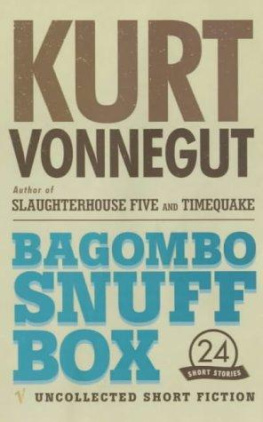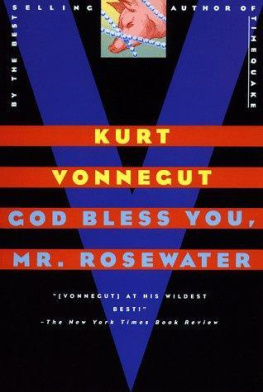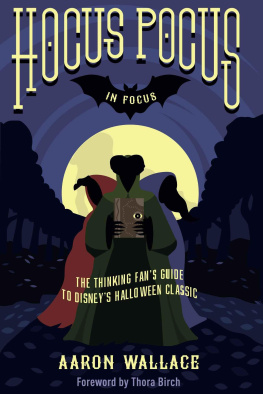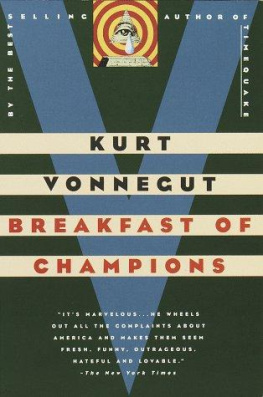Kurt Vonnegut - Hocus Pocus
Here you can read online Kurt Vonnegut - Hocus Pocus full text of the book (entire story) in english for free. Download pdf and epub, get meaning, cover and reviews about this ebook. year: 1997, publisher: Berkley Trade, genre: Detective and thriller. Description of the work, (preface) as well as reviews are available. Best literature library LitArk.com created for fans of good reading and offers a wide selection of genres:
Romance novel
Science fiction
Adventure
Detective
Science
History
Home and family
Prose
Art
Politics
Computer
Non-fiction
Religion
Business
Children
Humor
Choose a favorite category and find really read worthwhile books. Enjoy immersion in the world of imagination, feel the emotions of the characters or learn something new for yourself, make an fascinating discovery.
- Book:Hocus Pocus
- Author:
- Publisher:Berkley Trade
- Genre:
- Year:1997
- Rating:5 / 5
- Favourites:Add to favourites
- Your mark:
- 100
- 1
- 2
- 3
- 4
- 5
Hocus Pocus: summary, description and annotation
We offer to read an annotation, description, summary or preface (depends on what the author of the book "Hocus Pocus" wrote himself). If you haven't found the necessary information about the book — write in the comments, we will try to find it.
Hocus Pocus — read online for free the complete book (whole text) full work
Below is the text of the book, divided by pages. System saving the place of the last page read, allows you to conveniently read the book "Hocus Pocus" online for free, without having to search again every time where you left off. Put a bookmark, and you can go to the page where you finished reading at any time.
Font size:
Interval:
Bookmark:
I have discovered from reading old newspapers and letters and diaries from back then that the men who built the machines for Elias Tarkington knew from the first that they would never work, whatever the reason. Yet what love they lavished on the materials that comprised them! How is this for a definition of high art:
Making the most of the raw materials of futility?
Still another perpetual-motion machine envisioned by Elias Tarkington was what his Last Will and Testament called The Mohiga Valley Free Institute. Upon
his death, this n~w school would take possession of his 3,000-hectare estate above Scipio, plus half the shares in the wagon company, the carpet company, and the brewery. The other half was already owned by his sisters far away. On his deathbed he predicted that Scipio would I day be a great metropolis and that its wealth would transform his little college into a university to rival Harvard and Oxford and Heidelberg.
It was to offer a free college education to persons of either sex, and of any age or race or religion, living within 40 miles of Scipio. Those from farther away would pay a modest fee. In the beginning, it would have only 1 full-time employee, the President. The teachers would be recruited right here in Scipio. They would take a few hours off from work each week, to teach what they knew. The chief engineer at the wagon company, for example, whose name was Andr Lutz, was a native of Liege, Belgium, and had served as an apprentice to a bell founder there. He would teach Chemistry. His French wife would teach French and Watercolor Painting. The brewmaster at the brewery, Hermann Shultz, a native of Leipzig, would teach Botany and German and the flute. The Episcopalian priest, Dr. Alan Clewes, a graduate of Harvard, would teach Latin, Greek, Hebrew, and the Bible. The dying mans physician, Dalton Polk, would teach Biology and Shakespeare, and so on.
And it came to pass.
In 1869 the new college enrolled its first class, 9 students in all, and all from right here in Scipio. Four were of ordinary college age. One was a Union veteran who had lost his legs at Shiloh. One was a former black slave 40 years old. One was a spinster 82 years old.
The first President was only 26 years old, a schoolteacher from Athena, 2 kilometers by water from Scipio. There was no prison over there back then, but only a slate quarry and a sawmill and a few subsistence farms. His name was John Peck. He was a cousin of the Tarkingtons. His branch of the family, however, was and remains unhampered by dyslexia. He has numerous descendants in the present day, 1 of whom, in fact, is a speech writer for the VicePresident of the United States. Young John Peck and his wife and 2 children and his mother-in-law arrived at Scipio by rowboat, with Peck and his wife at the oars, their children seated in the stern, and their luggage and the mother-in-law in another boat they towed behind.
They took up residence on the third floor of what had been Elias Tarkingtons mansion. The rooms on the first 2 floors would be classrooms, a library, which was already a library with 280 volumes collected by the Tarkingtons, study halls, and a dining room. Many treasures from the past were taken up to the attic to make room for the new activities. Among these were the failed perpetual-motion machines. They would gather dust and cobwebs until 1978, when I found them up there, and realized what they were, and brought them down the stairs again. One week before the first class was held, which was in Latin, taught by the Episcopalian priest Alan Clewes, Andr Lutz the Belgian arrived at the mansion with 3 wagons carrying a very heavy cargo, a carillon consisting of 32 bells. He had cast them on his own time and at his own expense in the wagon factorys foundry. They were made from mingled Union and Confederate rifle
barrels and cannonballs and bayonets gathered up after the Battle of Gettysburg. They were the first bells and surely the last bells ever to be cast in Scipio.
Nothing, in my opinion, will ever again be cast in Scipio. No industrial arts of any sort will ever again be practiced here.
Andr Lutz gave the new college all those bells, even though there was no place to hang them. He said he did it because he was so sure that it would 1 day be a great university with a bell tower and everything. He was dying of emphysema as a result of the fumes from molten metals that he had been breathing since he was 10 years old. He had no time to wait for a place to hang the most wonderful consequence of his having been alive for a little while, which was all those bells, bells, bells.
They were no surprise. They had been 18 months in the making. The founders whose work he supervised had shared his dreams of immortality as they made things as impractical and beautiful as bells, bells, bells. So all the bells but I from a middle octave were slathered with grease to prevent their rusting and stored in 4 ranks in the estates great barn, 200 meters from the mansion. The I bell that was going to get to sing at once was installed in the cupola of the mansion, with its rope running all the way down to the first floor. It would call people to classes and, if need be, also serve as a fire alarm.
The rest of the bells, it turned out, would slumber in the loft for 30 years, until 1899, when they were hanged as a family, the 1 from the cupola included, on axles in the belfry of the tower of a splendid library given to the school by the Moellenkamp family of Cleveland.
The Moellenkamps were also Tarkingtons, since the
founder of their fortune had married a daughter of the illiterate Aaron Tarkington. Eleven of them so far had been dyslexic, and they had all gone to college in Scipio, since no other institution of higher learning would take them in.
The first Moellenkamp to graduate from here was Henry, who enrolled in 1875, when he was 19, and when the school was only 6 years old. It was at that time that its name was changed to Tarkington College. I have found the crumbling minutes of the Board of Trustees meeting at which that name change was made. Three of the 6 trustees were men who had married daughters of Aaron Tarkington, 1 of them the grandfather of Henry Moellenkamp. The other 3 trustees were the Mayor of Scipio, and a lawyer who looked after the Tarkington daughters interests in the valley, and the area Congressman, who was surely the sisters faithful servant, too, since they were partners with the college in his districts most important industries. And according to the minutes, which fell apart in my hands as I read them, it was the grandfather of young Henry Moellenkamp who proposed the name change, saying that The Mohiga Valley Free Institute sounded too much like a poorhouse or a hospital. It is my guess that he would not have minded having the place sound like a catchment for the poor, if only he had not suffered the misfortune of having his own grandson go there. It was in that same year, 1875, that work began across the lake from Scipio, on a hilltop above Athena, on a prison camp for young criminals from big-city slums. It was believed that fresh air and the wonders of Nature would improve their souls and bodies to the point that they would find it natural to be good citizens. When I came to work at Tarkington, there were only 300 students, a number that hadnt changed for 50 years. But the rustic work-camp across the lake had become a brutal fortress of iron and masonry on a naked hilltop, the New York State Maximum Security Adult Correctional Institution at Athena, keeping 5,000 of the states worst criminals under lock and key.
Two years ago, Tarkington still had only 300 students, but the population of the prison, under hideously overcrowded conditions, had grown to 10,000. And then, 1 cold winters night, it became the scene of the biggest prison break in American history. Until then, nobody had ever escaped from Athena. Suddenly, everybody was free to leave, and to take a weapon from the prison armory, too, if he had use for 1. The lake between the prison and the little college was frozen solid, as easily traversed as the parking lot of a great shopping mall.
Font size:
Interval:
Bookmark:
Similar books «Hocus Pocus»
Look at similar books to Hocus Pocus. We have selected literature similar in name and meaning in the hope of providing readers with more options to find new, interesting, not yet read works.
Discussion, reviews of the book Hocus Pocus and just readers' own opinions. Leave your comments, write what you think about the work, its meaning or the main characters. Specify what exactly you liked and what you didn't like, and why you think so.















